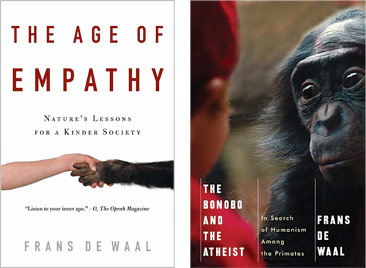
Featured Books
The Age of Empathy
and
The Bonobo and the Atheist
Over the past few decades, observations and experiments with social animals, including humans, have led to a conceptual revolution in the understanding of how human morality evolved and of humanity’s place in the animal kingdom. This information has been collected and condensed by primatologist Frans de Waal in two ground-breaking books.
In The Age of Empathy, de Waal makes clear how empathy binds social animals into communities that make survival possible. Prior to this understanding, a theory held sway that considered behavior as instinctual – the result of “built-in” reactions to stimuli. The idea that other social animals, like human beings, could be individuals with distinct personalities capable of making decisions based on feelings and relationships was not seen as plausible. That is, until dogged researchers compiled years of observations of just such behaviors and the human-like emotional relationships these behaviors implied.
These conclusions were validated and extended by observations of experiments with primates and other mammals living both in the wild and in “artificial” environments such as zoos and animal research centers. Among the spectrum of empathic behavior these experiments demonstrated were food sharing, cooperation in task completion, a sense of fairness, companionship, play for its own sake, post-conflict consolation of distressed individuals by a third party and much more along the lines requiring one individual to adopt the perspective of another. For example, just as with humans, injustice is strongly resented across the entire spectrum of social animals. In a typical experiment, when two monkeys are able to perceive that they are being rewarded unequally for performing the same task, the one receiving the lesser reward often refuses to complete the task.
Neurophysiological research has shown that the capacity for empathic response in humans and other social animals is enabled by brain structures known as mirror neurons (nerve cells). When encountering other group members, primates such as humans, chimpanzees and monkeys tend to imitate behavior through the activation of mirror neurons and as a result gain a sense of the other individual’s emotional state or as de Waal puts it, “lets one organism get under the skin of another.”
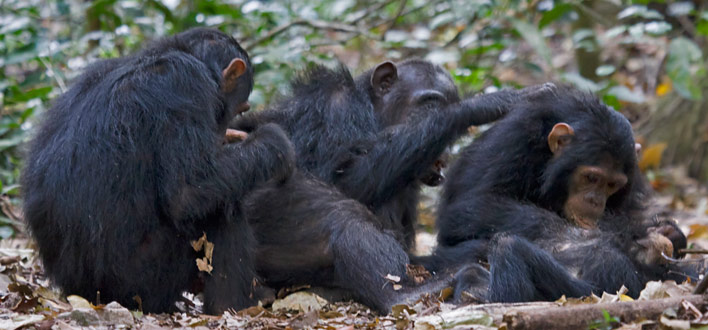
The ability of social animals to mirror one another’s emotional state is just the beginning. In sympathy, individuals not only empathically detect distress and seek ways to resolve the problem but then use their rational abilities to make a cost-benefit judgment in deciding what actions to take on another’s behalf. Sometimes there’s an expectation of “payback” and this is known as reciprocal altruism. In other situations, motivation for voluntary sacrifice on behalf of kin is explained as behavior in support of a shared gene pool. But what to make of sacrifice where there is no shared genetic ancestry or even commonality of beliefs and values, such as an anonymous donation to a community or cause disconnected to one’s group? In The Bonobo and the Atheist, de Waal takes the discussion of empathy into the domain of community concern and morality and he finds this too to be a legacy of evolution.
Cooperation and Competition
The Age of Empathy often uses observations of chimpanzee behavior to demonstrate the emotional bonding that creates a community of social animals. Chimpanzee society is a male-dominated hierarchy in which rank is established through competition. Among humans, hierarchical ranking of individuals is often attributed to competitive achievement. After Darwin introduced his Theory of Natural Selection, ideas about genetic fitness were misapplied constructing a theory of social ordering that mistakenly emphasizes competition over cooperation to the detriment of society. Darwin explained the process of evolution as the result of: first, the biological random variation in a group of organisms, say increased height or beak size, and second, since some of these changes would favor greater reproductive success, they’d be “selected by the environment.” This became to be known as “survival of the fittest,” a theory that subsequently degenerated into a devaluation of individuals with poor sight or hearing or low intelligence. Early “eugenics” then sought to remove these traits from the population by sterilization or, later, as in Nazi Germany, by execution. But for social animals, cooperation is at least as important for survival as competition. And if according to the theory, genes are key determinants of social interaction, we would expect those underpinning cooperation to be passed along as well.
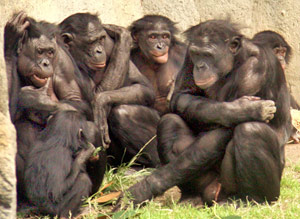
In The Bonobo and the Atheist, de Waal introduces a second chimpanzee species, the female-led bonobo. Unlike the more aggressive chimpanzee, bonobo society is far less competitive and tension is dissipated by near-constant sexual activity as opposed to aggression. By contrasting the very different social structures of these two primate species, de Waal demonstrates the wide range of behaviors available to primates in achieving a satisfactory balance between competition and cooperation. Humans possess the same evolutionarily derived emotional underpinnings as other primates and historically, human societies have shown considerable variation in balancing cooperation and competition.
Morality and Empathy
Primates in a community maintain good relations in order to avoid unnecessary stress. Empathy enables individuals to assess behavioral limits. Social animals live in communities and must learn which behaviors will be rewarded and which will be punished under what circumstances. As a result, members of a community internalize a set of behavioral constraints termed one-on-one morality. This arrangement, adaptation for the benefit of two people, supports survival for both the community and its individual members. Despite the fact that non-human primates display one-on-one morality there is little evidence that individuals judge the appropriateness of their actions outside their own community.
Not so for humans. Unlike other primates, we react emotionally to behavioral situations comprising actors with whom we are not involved. We mentally construct and emotionally react to imagined situations and render judgments about them. In so doing, we are abstracting, generalizing and extending the behavioral constraints of one-on-one morality to members of a larger society, many of whom would be strangers. It is this transition extending principles for governing behavior that de Waal sees as the source of human morality.
De Waal sees morality as a product of evolution and takes issue with the view that it emerged from religious teachings. Instead, religious systems are seen as codifying evolved moral behavior within their respective doctrines and narratives. He speculates that early humans living in small bands practiced one-on-one morality similar to that of other primate species. Only when the scale of society began to grow and rules of reciprocity based on individual association were no longer adequate does he believe that religion incorporated pre-existing moral principles within its teachings. The adoption of uniform religious beliefs, ritual practice and uniform codes of conduct across a society helps create bonds of trust between individuals who might otherwise be unknown to each other.
Science and Religion
Despite the increasing amount of evidence attesting to the close evolutionary linkage of humans with other primates and beyond that with all of life, many followers of religious teachings that oppose evolution reject the evidence of science. De Waal explains that science is a rational activity of relatively recent vintage and that the dispassionate attitude required for scientific practice is not easily adopted. As in the case of the emergency room physician or anyone required to make judgments free of bias, it is difficult to put aside the emotional reaction that arises so effortlessly in everyday situations as compared with the detailed and dogged nature of logical thinking required in scientific practice. There’s a caution here as well in that the practice of science is not necessarily free of bias. In the long run, however, the truth-testing rules of science remove misinformation, allowing new knowledge to be accumulated.
Religion, by contrast, is static. It provides deep empathic connections between individuals comprising a community and, according to de Waal, is unlikely to ever go away since it is part of our “social skin.” It can change as a result of a changing society, but rarely in response to (scientific) evidence where that evidence is in conflict with deeply held beliefs. The result, in some quarters, is a never-ending conflict between religious dogma and scientific results and in others, a wholesale disparagement of religion as being ignorant of verifiable truth. Despite their very different functions, de Waal feels that much of the antipathy between science and religion is created by extremists in both camps who are interested primarily in protecting their vested doctrinal positions. Moreover, the author believes that along with religion and the other creative professions, the scientific pursuit of knowledge, is motivated by a similar inspiration to find meaning and provide a sense of purpose.
Future Morality
Morality evolved without consideration of humanity at large. Even today, our mosaic of cultures and religions create emotionally evoked antipathies—the negative of empathy. It is here that we need to increasingly rely on intellect in our attempt to create a more universal morality. Empathy notwithstanding, our biology has not prepared us to take the perspective of others with whom we do not share common touchstones of trust. However, evolution may still come to our aid. Humans have a long history of building new structures on top of old foundations. The diversity and richness of human civilization is in part due to the redeployment of evolved functions to meet new objectives. The opposable thumb, for example, did not develop to assist in playing the violin. The human cultural orchestra comprises many different instruments. We are now tasked with learning how to play together.
For more information on de Waal’s findings, visit Human Traits in Our Nearest Relatives, #7 Morality.
About the Book’s Author: Frans de Waal is Professor of Primate Behavior at the Emory University psychology department in Atlanta, Georgia, and director of the Living Links Center at the Yerkes National Primate Research Center.
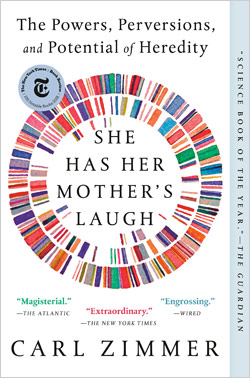
She Has Her Mother’s Laugh
The Powers, Perversions and Potential of Heredity
Carl Zimmer
Our understanding of heredity has come a long way and holds much promise, but we’ll need wise judgement to manage the emerging science of genetic engineering.
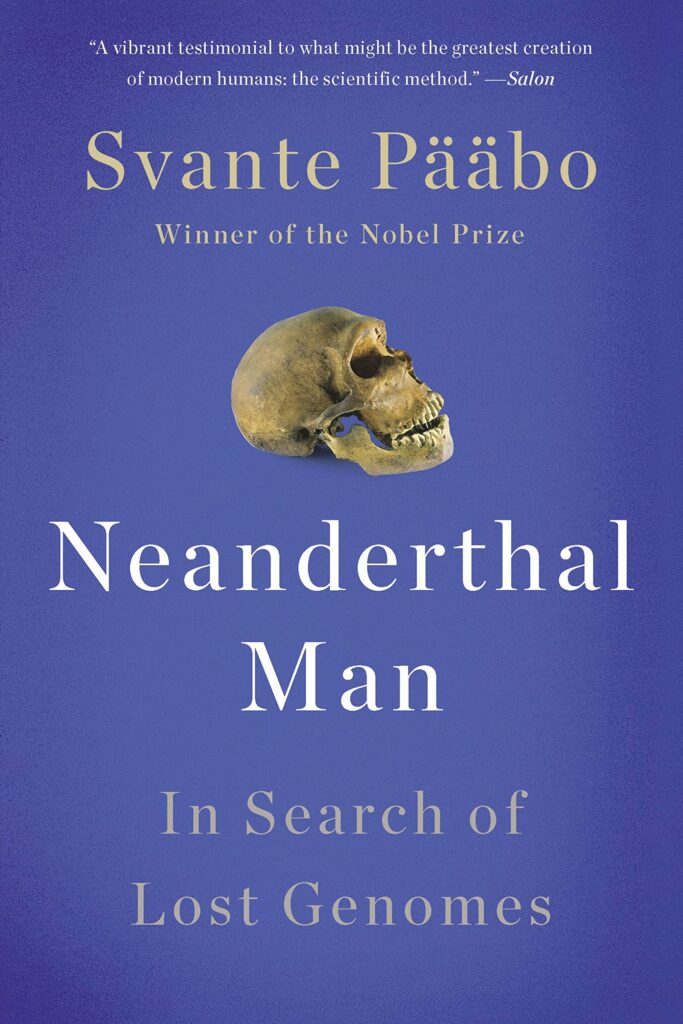
Neanderthal Man
In Search of Lost Genomes
by Svante Pääbo
Reviewed by George Kasabov
Neanderthals, our nearest cousin species, finally died out soon after 40,000 years ago. How are we related to them?
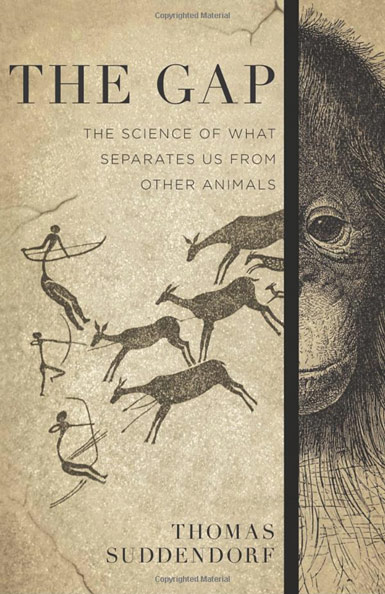
The Gap
The Science of What Separates Us from Other Animals
Thomas Suddendorf
A leading research psychologist concludes that our abilities surpass those of animals because our minds evolved two overarching qualities.
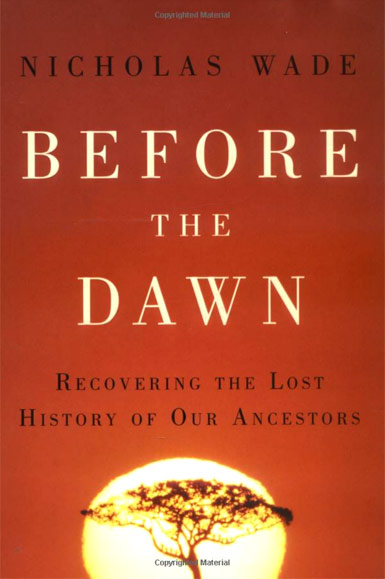
Before the Dawn
Recovering the Lost History of Our Ancestors
Nicholas Wade
New York Times science writer explores humanity’s origins as revealed by the latest genetic science.
In the series: Discovering Our Distant Ancestors
Related articles:
Further Reading
External Stories and Videos
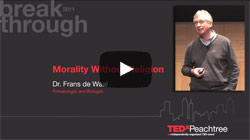

Watch: Morality Without Religion, TEDxPeachtree
Frans de Waal
“I am not sure that religion is at the root of morality because I personally think that morality existed before we had religions … all human societies have a form of religion so what does religion contribute to human society – that’s the question.”
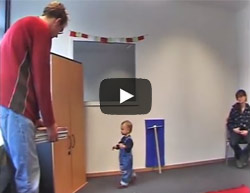

Watch: Experiments with altruism in children and chimps
Max Planck Institute for Evolutionary Anthropology
A series of experiments testing altruism in both very young children and chimpanzees.
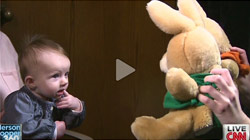
Watch: Are we born with a moral core? The Baby Lab says ‘yes’
CNN
Yale University researchers say babies are born with knowledge of right and wrong. A test with puppets shows babies preferring the “good” character most of the time.
